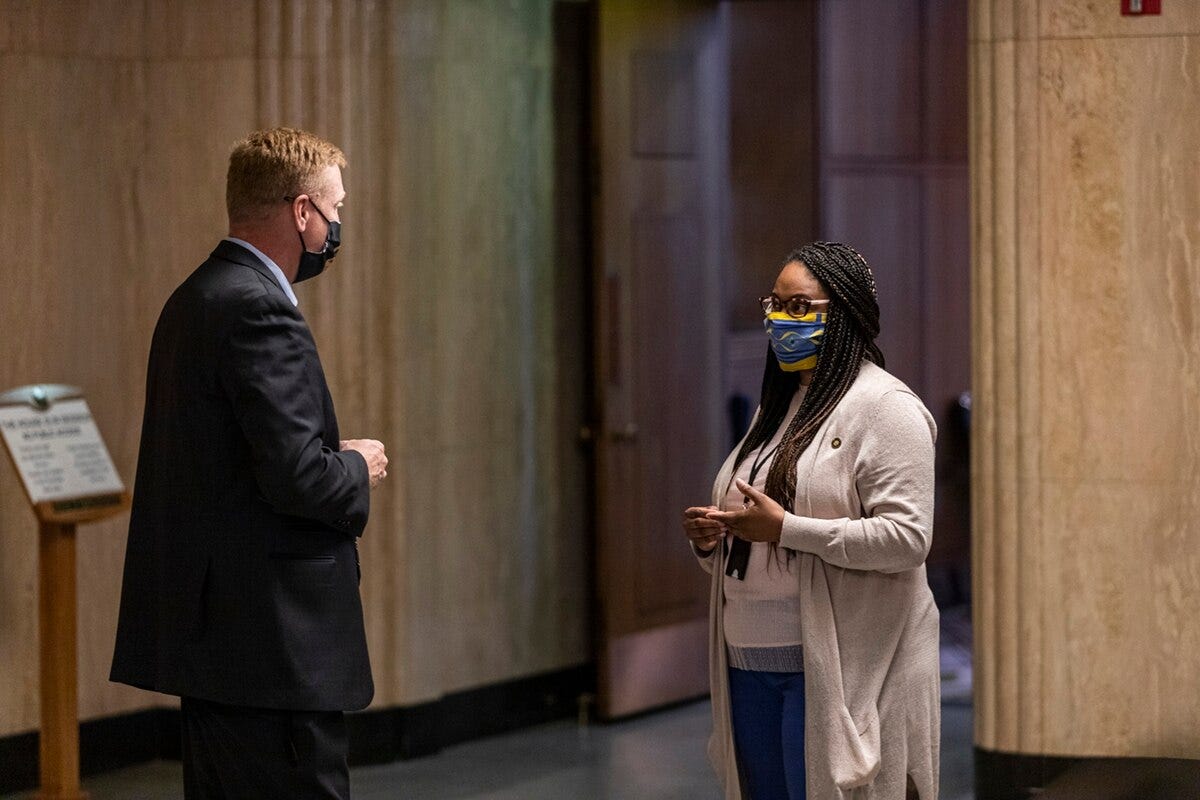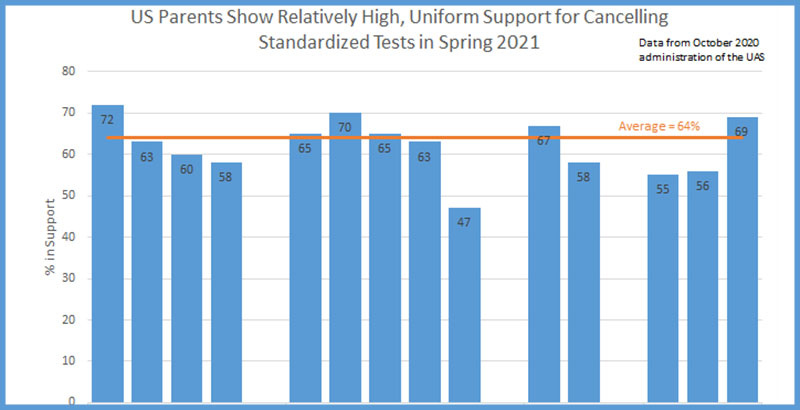It is that time of year — no, I am not talking about that time of year for over-eating, over-decorating, or the onslaught of consumerism. It is that time of year for parent-teacher conferences.
This year I have three conferences to attend, scheduling was a bit messy. I think virtual conferences are easier for us though, because I don’t have to haul all four children (by myself) through a school at dinner time while being nervous about discussing the myriad of challenges like bullying, phonics, and double-digit subtraction (yuck!). Also, our teachers have been communicating frequently over the last couple months, making conferences go much smoother. In addition, my fourth grader was asked to identify work that she felt was exemplary and work that she felt showed opportunity to grow — this is the type of conference I look forward to.
I want to know though, how are we sharing information about unfinished learning from last spring? My daughter and I had a brief “a-ha” moment last week when she hit a wall in math. Her teacher prompted me to ask what she was confused about and she suggested, “I don’t think I learned this last year.” It was so obvious that it made me smile and cry inside all at the same time. She, and many other students, didn’t learn big chunks of our standards.
Many students haven’t taken a standardized assessment this year to identify where there may be unfinished learning — how will conferences address this? How will we build those on-ramps to grade-level learning that we talked about all summer? I know many of us are concerned about getting students back into buildings as soon as possible, but before we throw all of our weight behind solving that massive problem we must be measured in our efforts and focus on establishing consistency and improving what we are doing already.
FEDERAL FUNDING AND NATIONAL POLICY
The US economy is rapidly approaching the end of our national funding, meanwhile Mnuchin is proposing to withdraw CARES Act funding that provides fiscal supports for services keeping our communities afloat. Local education leaders are highly concerned about how the next presidential administration will exacerbate or alleviate equitable opportunities to learn. In response to these concerns, IES is exploring ways to fund education networks and transformative education models like digital learning platforms.
“Local education leaders are highly concerned about how the next presidential administration will exacerbate or alleviate equitable opportunities to learn.” #edpolicy #edequity @Chalkbeat @IESResearch @AASAHQ @Noellerson @cmtpitts https://edpolicyhotlist.substack.com/
On COVID and schools, President-elect Biden has promised a different approach | Chalkbeat
Mnuchin Declines to Extend Several Fed Emergency Lending Programs | WSJ
US economy hurtles toward 'COVID cliff' with programs set to expire | The Hill
Leadership Makes a Difference: Lamar Alexander and K–12 Education | Education Next
On The Trail: Biden wins America's economic engines | The Hill
USED visualization of how the Education Stabilization Fund (ESF) was spent | USED
POLITICS
Racial identity is central in our transitioning politics today. From the executive office, to congress, and at the local levels our communities are challenged to grapple with an inflection point in how anti-racism plays out in politics. What gets lost in the media and political churn is that politics is a reflection of history and the advances we make are ladened with story, context, and nuance - this goes for the untold stories about anti-blackness, racism, and the culture of American politics that play out across our country. Now is the time for all of us to ask for clarification from our neighbors and representatives; be brave, be bold, and seek to understand what is happening behind the news articles.
“What gets lost in the media and political churn is that politics is a reflection of history and the advances we make are ladened with story, context, and nuance.” #edequity #antiracism @cmtpitts https://edpolicyhotlist.substack.com/
Favorites emerge as Latino leaders press Biden to appoint 5 Hispanics to Cabinet | The Hill
Tlaib lashes out at centrist Dems over election debacle: ‘I can’t be silent’ | Politico
Rep. Janelle Bynum Will Seek to Become Oregon House Speaker in Unusual Floor Fight | Willamette Week
STATE AND LOCAL EDUCATION POLICY
Parents are more concerned than ever about how their children are faring academically, this is true across demographic groups and whether students are learning remotely or in person. As such, states and districts are trying to understand how to ensure equity, reduce burden, and hold true to strategic visioning and goals for our communities. Still, we need a lot more support from our research partners, education service providers, and sharing capital and capacity to get through this pandemic learning. I want to extend an invitation to those of you reading: if you have an idea for ways to build out this shared work please reach out to me at christinemtpitts@gmail.com!
Georgia high school tests won't count toward student grades | GA
Big Socioeconomic Disparity for in-Person Learning in Mass. Schools, Survey Finds | MA
State-sanctioned segregation: California’s school closure debate boils over | CA
Governor Strategies To Expand Affordable Broadband Access | NGA
ASSESSMENT AND ACCOUNTABILITY
The US Department of Education has shared that states can now shift their timelines for measuring and identifying schools in need of improvement; so it is imperative our systems maintain integrity to the long-term strategic plans and related scaffolding and supports. Many leaders will be asked by stakeholders to cancel the 2021 summative measures (maybe even other interim standardized tests this year), however without those data is will be challenging for school and district leaders to see where they are going and maintain direction toward our community’s North Star. Imagine turning off your headlights on a winding coastal road - cliffs to your left, fog overtaking your car - where will you wind up? This is how it feels to lead a district with no data in the middle of a global public health, economic, and racial crisis.
“Imagine turning off your headlights on a winding coastal road - cliffs to your left, fog overtaking your car - where will you wind up? This is how it feels to lead a district with no data.” #eddata @cmtpitts @The74 @mpolikoff https://edpolicyhotlist.substack.com/
TEACHING AND LEARNING
Teachers are rarely compensated for their additional expenses and time, but the pandemic has expanded this toll. This year educators are using a variety of techniques to address the layers of barriers to teaching and learning for English learners and special education students, as well as other critical services for food, health, and family services. In the middle of these efforts are a variety of styles and services included in the “learning pod” family that differ tremendously by who runs them, how teaching happens, and who they serve. At a systems level, education leaders are trying to understand how the modernization of education coming out of the pandemic will expand and how we can collect evidence of its efficacy right now.
“At a systems level, education leaders are trying to understand how the modernization of education coming out of the pandemic will expand and how we can collect evidence of its efficacy right now.” #evidence #edpolicy @cmtpitts https://edpolicyhotlist.substack.com/
3 ways K-12 schools can evolve post-pandemic | Education Dive
Teachers forced to “Mac-Gyver” their own tech solutions | The Hechinger Report
Linking Social-Emotional Learning to Long-Term Success | Education Next
REOPENING SCHOOLS
In June, I was lobbying for a statewide initiative to use federal relief funding that would provide state funded digital learning platforms and assessments to every single district in our state. Shortly after, the topic of whether or not to return to in-person learning in fall was politicized and any air-space or capacity succumbed to this back-an-forth. In the end, we were less prepared for distance learning and we are sliding into the same trap today. Education leaders and stakeholders are being sucked into the political black hole about whether or not to return to buildings, meanwhile parents and teachers are just getting by (only a handful of states have statewide guidance for school reopening so far, see my back-of-the-envelope summary here). I am currently working on a high-level policy analysis and would appreciate your feedback if you’d like to share at christinemtpitts@gmail.com. The biggest mom and researcher takeaways are that families and children still need a lot of support, but the “churn” will continue into this year if allow that to mitigate our efforts to improve remote instruction in the moment.
#edleaders sucked into the political black hole about returning to buildings, mnwhle parents and teachers are just getting by; biggest mom and researcher tkaways are that families and children still need a lot of support, but the “churn” may cont' @RbnLake https://edpolicyhotlist.substack.com/publish/post/19640286
Many schools abandon plans for in-person learning as COVID-19 cases spike | PBS
New York City to Close Public Schools Again as Virus Cases Rise | NYT
UPCOMING EVENTS
Thursday, December 3 (4:00 PM EST) AASA, NASEP, CCSSO, New America, and NAECS hosting Partner with Families.
Thursday, December 10 (4:00 PM EST) AASA, NASEP, CCSSO, New America, and NAECS hosting Lead strategically and Continuously Improve.
Thursday, December 10 (11:00 AM EST) Alliance for Excellent Education webinar on When equity is optional: ESSA’s fifth anniversary and early lessons from implementation.
Dr. Christine M. T. Pitts serves as Manager of Research and Evaluation at Portland Public Schools. As an Oregonian, raised by a multicultural family of educators, she brings a decade of progressive strategic leadership experience, a transformative vision, and analytic skill to crafting state education policy. An educator and researcher by training, she has conducted legislation, governance, and policy analyses on a wide array of education issues using social network analysis and mixed methods research. In addition, Dr. Pitts is a facilitative leader who deeply understands and co-constructs local and national partnerships and convening across stakeholder groups. Dr. Pitts currently coordinates between state and national policy leaders to investigate and advocate for policies that prioritize equity in education. Christine lives with her husband and four children in Portland, Oregon. Follow her on Twitter @cmtpitts.











